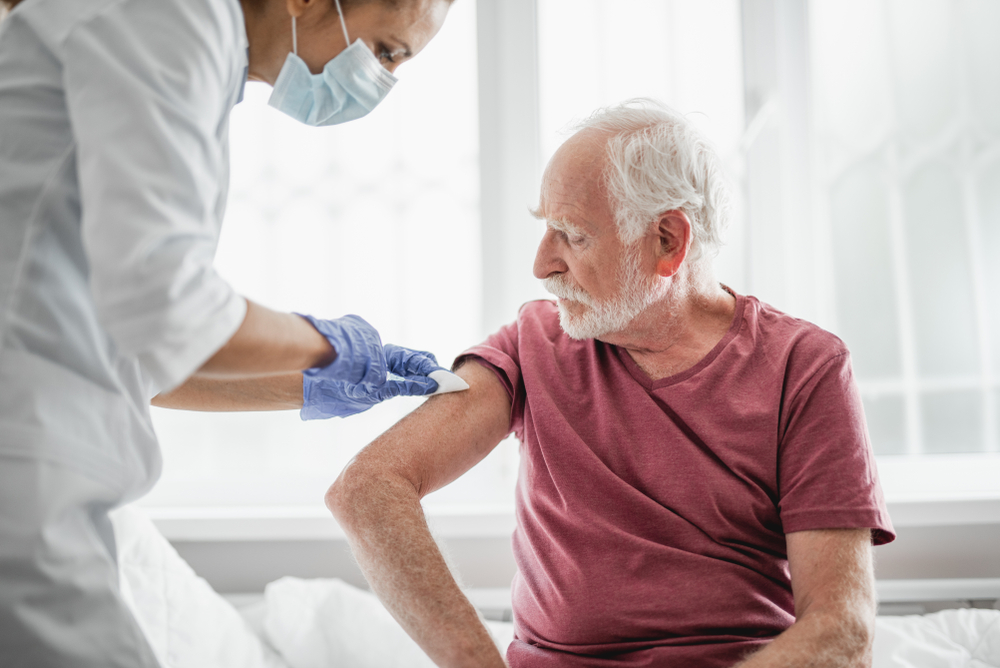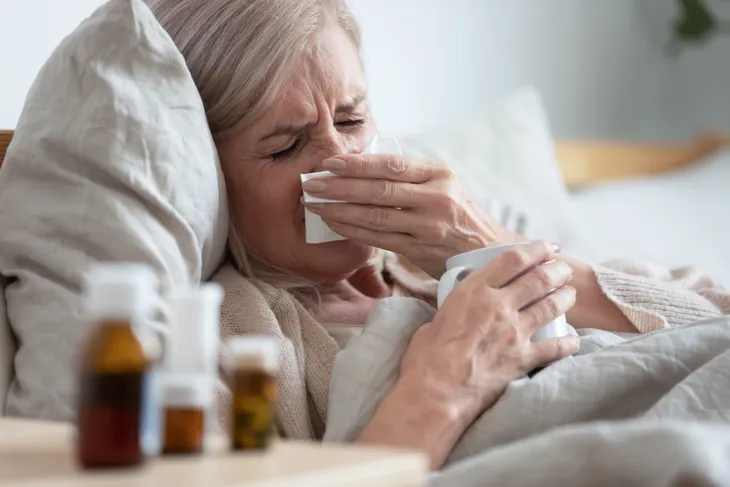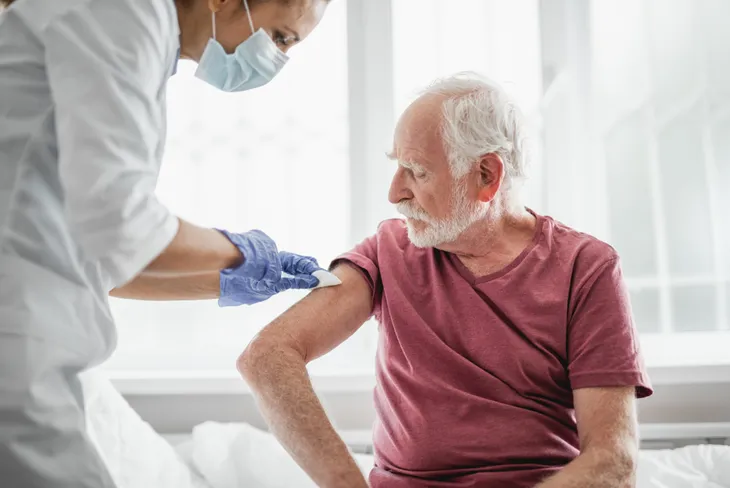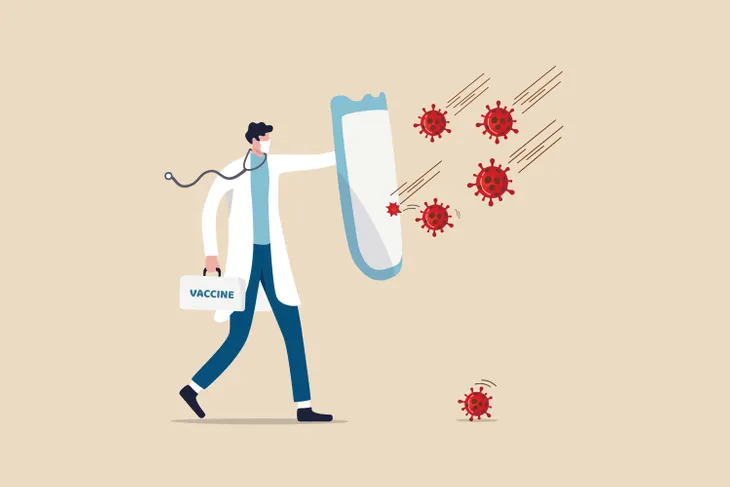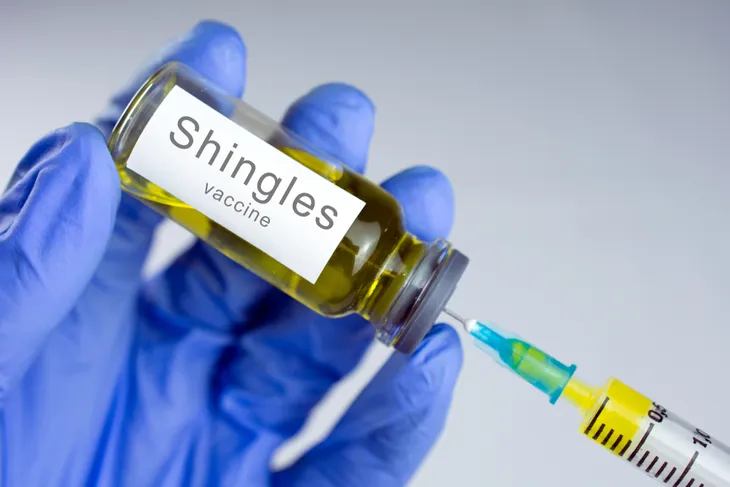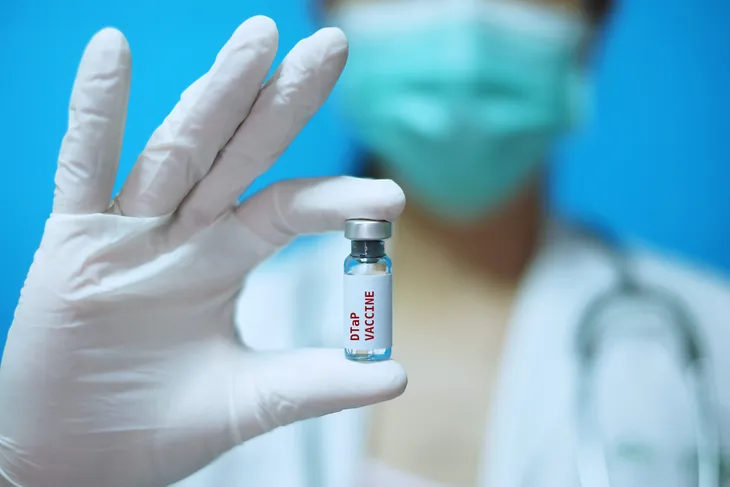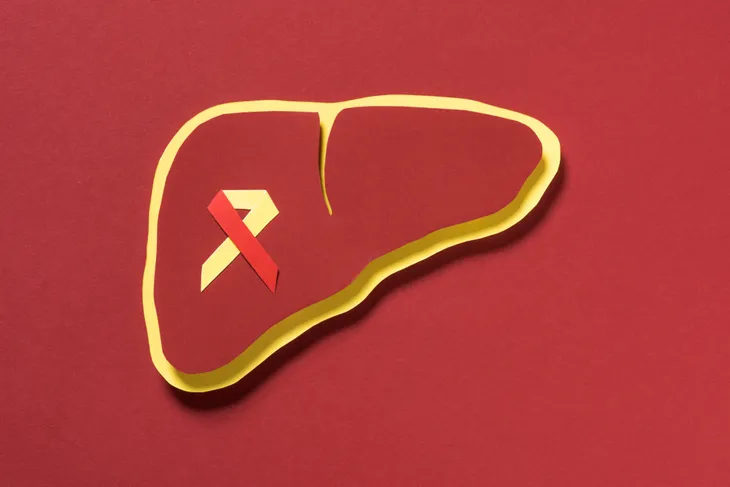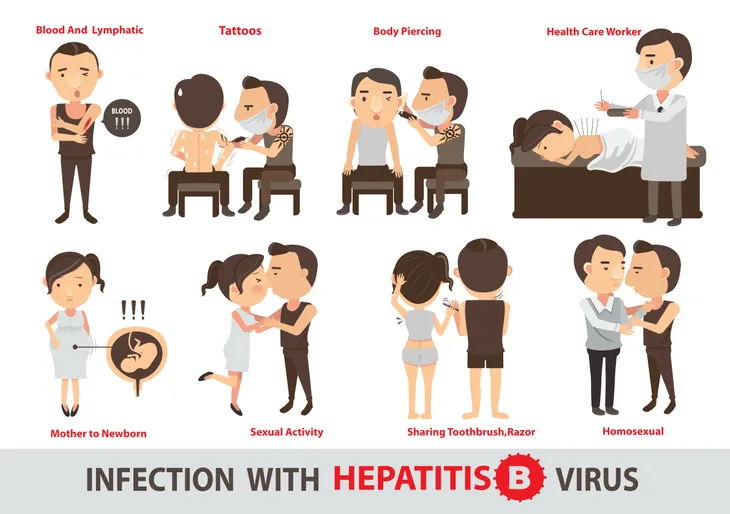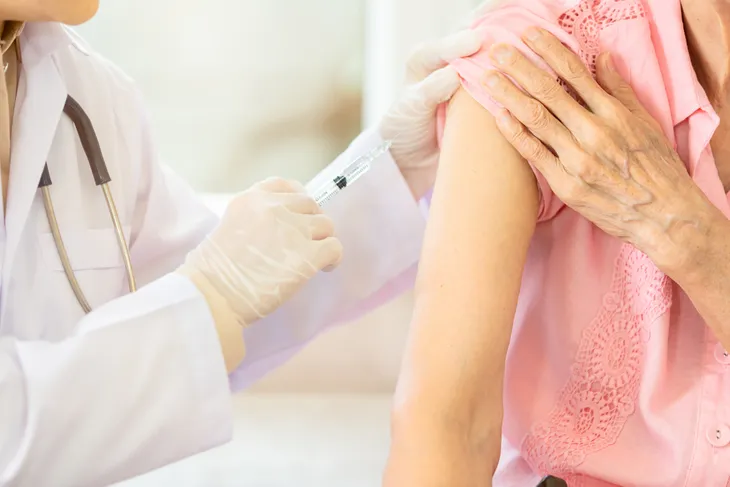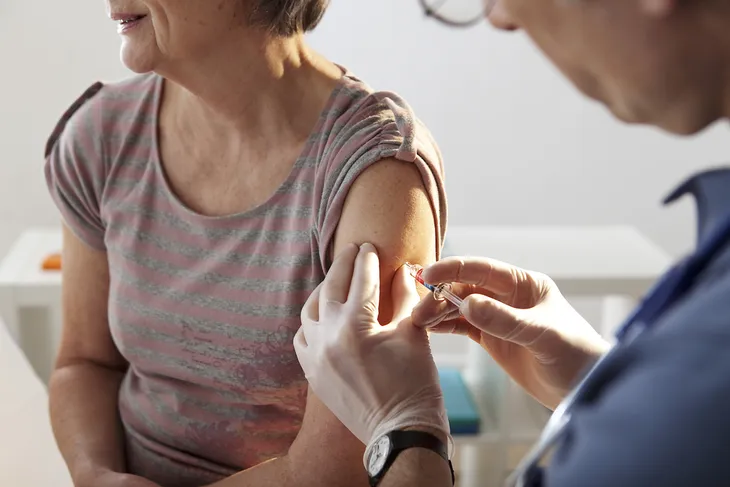When you think of vaccines, you probably associate them with your childhood, but they are just as important to adults and seniors. Also called immunizations or shots, vaccines provide you with immunity from diseases that can range from the flu to meningitis. According to John Muir Health, “an estimated 45,000 adults die annually from complications due to vaccine-preventable diseases.”
Here’s the important piece, those childhood vaccines don’t last forever. As we age, our immunity against diseases eventually wanes. The diseases you were at risk for as a child can once again become a threat as a senior.
Seniors are at particularly high risk for certain diseases due to their changing immune system and their living situations (i.e., senior care centers). Take a look at our list of vaccines seniors should consider to protect yourself and those you love.
Influenza Vaccine
Every year starting in October the flu season starts and causes an annual nuisance. For most people, the flu is uncomfortable, but it doesn’t cause any complications. But for seniors, an influenza infection can be quite serious. With the weakened immune system of an older adult, the flu can cause serious complications, such as pneumonia or bronchitis. It’s these complications that result in hospitalizations and deaths among seniors.
“In recent years, for example, it’s estimated that between 70-percent and 85-percent of seasonal flu-related deaths have occurred in people 65 years and older, and between 50-percent and 70-percent of seasonal flu-related hospitalizations have occurred among people in this age group,” says the Centers for Disease Control and Prevention (CDC). Seniors over 65 should get the vaccine via the flu shot (NOT the nasal spray). In addition, seniors qualify for a high dose flu vaccine that contains four times the amount of antigen says the CDC.
Pneumococcal Polysaccharide Vaccine (PPSV23)
The pneumococcal polysaccharide vaccine (PPSV23), is the typical pneumonia vaccine that is recommended for seniors. The CDC recommends this vaccine for three groups: adults age 65 years and older, people age 2 through 64 years with certain medical conditions, and those age 19 through 64 years who smoke cigarettes.
This vaccine protects you against the Streptococcus pneumoniae bacteria. It can cause mild infections to very serious, life-threatening infections. By protecting yourself against this bacteria, you not only decrease your chances of developing a serious infection, but also protect the people around you. Talk to your doctor to determine if this vaccine is right for you.
Pneumococcal Conjugate Vaccine (PCV13)
The second kind of pneumonia vaccine is pneumococcal conjugate (PCV13), which is recommended for children and babies under 2 years of age and people over 2 years of age who have certain medical conditions, says the CDC. This is not the typical pneumonia vaccine that is recommended for seniors, but it could be administered if they fall under the latter category of having certain medical conditions.
The CDC recommends administering the PCV13 vaccine, “…based on shared clinical decision-making for adults 65 years or older who do not have an immunocompromising condition, cerebrospinal fluid leak, or cochlear implant and have never received a dose of PCV13.” You’ll need to discuss the best course for your situation with your doctor.
Shingles Vaccine
Think of shingles as your childhood chickenpox infection coming back to haunt you. Shingles is caused by the same virus as childhood chickenpox, varicella-zoster. If you had chickenpox as a child, the virus never left your body. It’s hiding in your nerve cells and can come back as shingles later in life. But here’s the good news, you can significantly decrease your chances of getting shingles by getting vaccinated.
According to the CDC, the shingles vaccine, Shingrix, is recommended for anyone over the age of 50 and “protection stays above 85-percent for at least the first 4 years after you get vaccinated.” You will need two total doses of Shingrix, 2 to 6 months apart. You should still get the vaccine if you already have had shingles, as it will protect you from a future recurrence.
DTap
DTaP stands for diphtheria, tetanus, and pertussis. This vaccine is recommended in adults younger than 64 years of age according to John Muir Health. Pertussis, commonly known as whooping cough, is a contagious respiratory disease that causes uncontrollable coughing fits that can make it hard to breathe. The source reports that “more and more seniors are getting pertussis, or whooping cough, possibly due to fading immunity.”
Booster shots are recommended every 10 years to maintain adequate immunity. Talk to your doctor if you have medical conditions or are concerned about your eligibility for receiving the vaccine. By protecting yourself against these diseases you’ll also be protecting those who are too young or too sick to be vaccinated.
Hepatitis A
Hepatitis A isn’t a standard vaccine that every senior needs. It’s recommended if you travel to countries where hepatitis A is common or engage in recreational drug use, says AARP. Many people don’t even know they are infected, while others can become seriously ill and even endure liver damage. To give yourself full protection, you will need two doses of the vaccine.
Hepatitis A is a liver disease that is spread through close contact with an infected person or food that has been contaminated with the virus by an infected person, says the CDC. Thankfully, hepatitis A infections have gone down in the U.S. since the vaccine was made available. If you are on the fence about getting this immunization, please talk to your doctor to decide if it’s right for you.
Hepatitis B
Hepatitis B is another vaccine that most seniors do not need but should consider. It is a liver infection that is spread through bodily fluids (i.e., saliva, blood, and semen) according to the CDC. This can happen during close contact, sexual activity, sharing needles, and even during childbirth (passing from mother to baby). If you have plans to travel to a location where hepatitis B is prevalent, you should talk to your doctor about getting the hepatitis B vaccine.
If you and your doctor determine that you do in fact need a hepatitis B vaccine, you will likely need three doses. AARP reports that “…the second dose [is] given 4 weeks after the first; the third dose 5 months after the second.” You’ll want to get all three doses before your travel, so plan ahead and make those vaccine appointments.
Vaccines Seniors Need for Traveling
Traveling puts people at risk to diseases their bodies have never seen before. Older age and a new illness is a poor combination that no one wants to experience while on vacation. Each travel destination has its own list of diseases that the CDC recommends travelers get vaccinated against. This vaccine destinations list covers each disease so you can go into your doctor’s office prepared with information.
Unfortunately, seniors cannot get every vaccine that may be on the destination list. You will need to talk to your healthcare provider to go over any of your pre-existing conditions that could be a contraindication to some vaccines.
Vaccines Seniors Don’t Need
One of the benefits of being a senior is that you don’t need some of the vaccines that your younger counterparts will need. Morgan Katz, M.D., an assistant professor of medicine at Johns Hopkins University School of Medicine, tells AARP, “anyone born before 1957 wouldn’t need a measles vaccine because the disease was so prevalent when they grew up that immunity as an adult is assumed.”
Most seniors have also been exposed to the chickenpox virus (varicella-zoster) and won’t need the chickenpox vaccine. However, don’t forget the shingles vaccine. After a chickenpox infection, the virus lays dormant in your nerves and can rear its ugly head later in life with a painful rash we call shingles.
When Seniors Should NOT Get Vaccines
Just because you qualify for a vaccination doesn’t mean you should get it. Seniors can have weakened immune systems and therefore need to discuss the risks and benefits of every vaccine with their providers. In some cases, your medical conditions (i.e., diabetes, heart disease, or kidney disease) could be reasons for not getting a vaccine.
Do not get a vaccine if you’re ill. A runny nose or cough isn’t enough to prevent you from getting a vaccine, but if you have a serious illness, now is not the time for a vaccine. Just reschedule and go when you’re feeling better. Your body will thank you!
